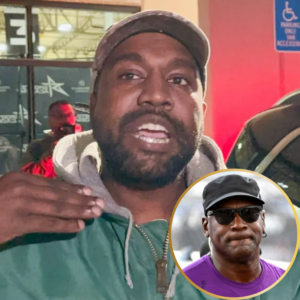Kirk Hammett Explains Why Metallica’s ‘Justice’ Is So Complex & Progressive, Shares Honest Opinion on Bob Rock & His Work Method
“A lot of times it’s a lot of frustration,” the guitarist said.

During an appearance on Gibson Icons, Metallica guitarist Kirk Hammett talked about the band’s late-’80s era, focusing on the peak of their progressive, complex side with 1988’s “…And Justice for All.”
Metallica is promoting the “S&M2” record, you can check it out here via Amazon.
Kirk commented (transcribed by UG):

“In the late ’80s, the music culture kind of steered itself towards musical proficiency, and how proficient you were with your instrument, and how virtuosic you can be with your technique. There was a lot of emphasis on that kind of thing, and there were a lot of instrumental albums being put out by a lot of guitar players that were super-successful.
“The showy bit of being in a band was kind of augmented by things like MTV and just being able to play your instrument. So I think that had a bit of an influence on us in terms of wanting to show people what we could do and how progressive we can be.
“Because after our [1986] album ‘Master of Puppets,’ we thought, ‘Wow, this is as technical as it gets.’ And at that point in our musicality, it was about as technical as we could get, but we wanted to show people that we can even go further. And so, conceptually, that was what we were thinking in the songwriting.
“And the riffs, after touring on the Ozzy tour and then playing all those headline shows, we had started taking advantage of the fact that when you’re on tour, the level of your playing ability is really high – playing at 100%, and all of a sudden, all these riffs are coming out.
“And we’re experiencing that pretty much for the first time, writing riffs on tour because it’s just what happens after a while. And so, a lot of the riffs that ended up on ‘…And Justice for All’ were written on ‘Master of Puppets,’ and the technicality of what we were doing on ‘Master of Puppets’, wanting to take that further, influenced how those riffs were written.
“So when it came to a time to get all the music together for ‘…And Justice for All’, we had a bevy of rifts that were just that much more thought-out and developed, and more progressive, because we had the ability to be more progressive, so we just took that and ran with it.
“We knew because we had a relationship with MTV when they were planning on playing the video [for ‘One’]. They said, ‘Yeah, we’ll play it twice an hour, so six o’clock we’re gonna play it twice an hour, eight o’clock we’re gonna play twice, blah, blah, blah.’ So we actually knew in advance what was going to come on.
“And I remember watching it, and then afterward the VJ said, ‘Oh, man, that was depressing… OK, now on to better things.’ And instantly I thought, ‘We have something.’ If that was the reaction of the VJ, and there are no videos like that on MTV at that point that was like the ‘One’ video with dialogue.
“I thought, ‘We’re on to something. We are on to something here.’ I always knew the song was great but you can think a song is great but the audience will for some reason or another think otherwise. But I just knew from the reaction that VJ that we had something that was actually hitting people on an emotional level.”
Check out the remastered version of “…And Justice for All” here via Amazon. Focusing on Metallica’s follow-up album, 1991’s “Black Album,” Kirk said when discussing producer Bob Rock and working with him for the first time:
Focusing on Metallica’s follow-up album, 1991’s “Black Album,” Kirk said when discussing producer Bob Rock and working with him for the first time:
“For me, I think Bob is an amazing producer, and he’s also an amazing engineer, and he has an amazing ear for guitar sounds, for drum sounds… Some of the best guitar sounds that I have ever gotten ever in my life, I’ve gotten with Bob Rock.
“And a lot of it is just like chasing tones, blending amps, using certain amps, certain pickups, certain guitars with certain amps, various combinations, blending amps, blending guitars…
“What I like about Bob Rock is that he is into the pursuit – if he hears something, a sound, or performance, he will pursue that or make you pursue it until he believes you’ve reached that point.
“And a lot of times it’s a lot of frustration, and there’s a lot of footage that shows him being just so frustrated going, ‘It’s not there yet. It’s not there yet. Do it! Push, push, do it!’ And he would do anything, say anything to just push us to that next level…
“Being recognized and getting so much attention from so many other guitar players all over the world – yeah, I feel the pressure of that, and I feel the expectations of that, but I’m not gonna let it affect the outcome of my own musicality.
“I started playing guitar because I have a curiosity, real curiosity for music, and how music works. And I also have emotions and feelings in me that, even to this day, I need to get out. What’s important is to make music that reflects your inner self, and is honestly not anything that’s been done before.
“And it’s difficult, but it’s a challenge that I like because I can wake up every day to that challenge, it gets me out of bed, and it gets me to walking over to my instrument and going, ‘What can I squeeze out of this thing now that’s different, that no one else has heard ever before?’…
“I hope this doesn’t sound too far-fetched or whimsical, but classical music has survived 700 years, even longer, but they can’t really document it. I really believe that heavy metal will probably outlast this century and maybe outlast us.
“And I don’t know what the world’s going to be like in the future, but as long as there’s a need for aggressive, energetic music that’s somewhat therapeutic, I think that there will be musicologists in the future, they’re going to find our music and find some merit and quality in it. And that’s huge.”
News
PHOTO: Hanna Cavinder, worth $924,000 NIL, wears an all-denim ensemble at the Miami Grand Prix in 2024. tt
PHOTO: $924,000 NIL-valued Hanna Cavinder show off an all-denim outfit for Miami Grand Prix 2024 Hanna and Haley Cavinder attended Miami Grand Prix 2024. Hanna Cavinder and…
Luka Doncic’s mother during the Mavericks-Clippers playoff game caught everyone’s attention with her exquisite ensemble. tt
Luka Doncic’s Mom Was Turning Heads With Her Stunning Outfit At Mavericks-Clippers Playoff Game Luka Doncic mother (Photo via Mirjam Poterbin/Instagram) Luka Doncic’s parents, Mirjam Poterbin and…
In an explosive Netflix documentary, Tim Donaghy exposed Michael Jordan, Phil Jackson, and the NBA (VIDEO) tt
Tim Donaghy Exposed The NBA, Phil Jackson, & Michael Jordan During Explosive Netflix Documentary (VIDEO) The name Tim Donaghy will forever be connected to the NBA as some fans…
During a rant, Kanye West shockingly claims that Michael Jordan’s father was “sacrificed” to the Illuminati (VIDEO) tt
Kanye West Makes Shocking Claim That Michael Jordan’s Dad Was ‘Sacrificed’ To The Illuminati During Rant (VIDEO) Kanye West has lost a lot of deals and a ton…
Details Of Michael Jordan’s Prenuptial Agreement With Current Wife Yvette Prietto Are Revealed in a New Report. tt
New Report Uncovers The Details Of Michael Jordan’s Prenup With Current Wife Yvette Prietto After going through a massive divorce in the past, NBA Great Michael Jordan apparently has a prenup…
“I Feel Bad for Michael”: Charles Barkley Gives His Take on Marcus Jordan’s Messy Affair With Larsa Pippen. tt
“I Feel Bad for Michael”: Charles Barkley Gives His Take on Marcus Jordan’s Messy Affair With Larsa Pippen Charles Barkley, Michael Jordan, Larsa Pippen and Marcus Jordan…
End of content
No more pages to load











